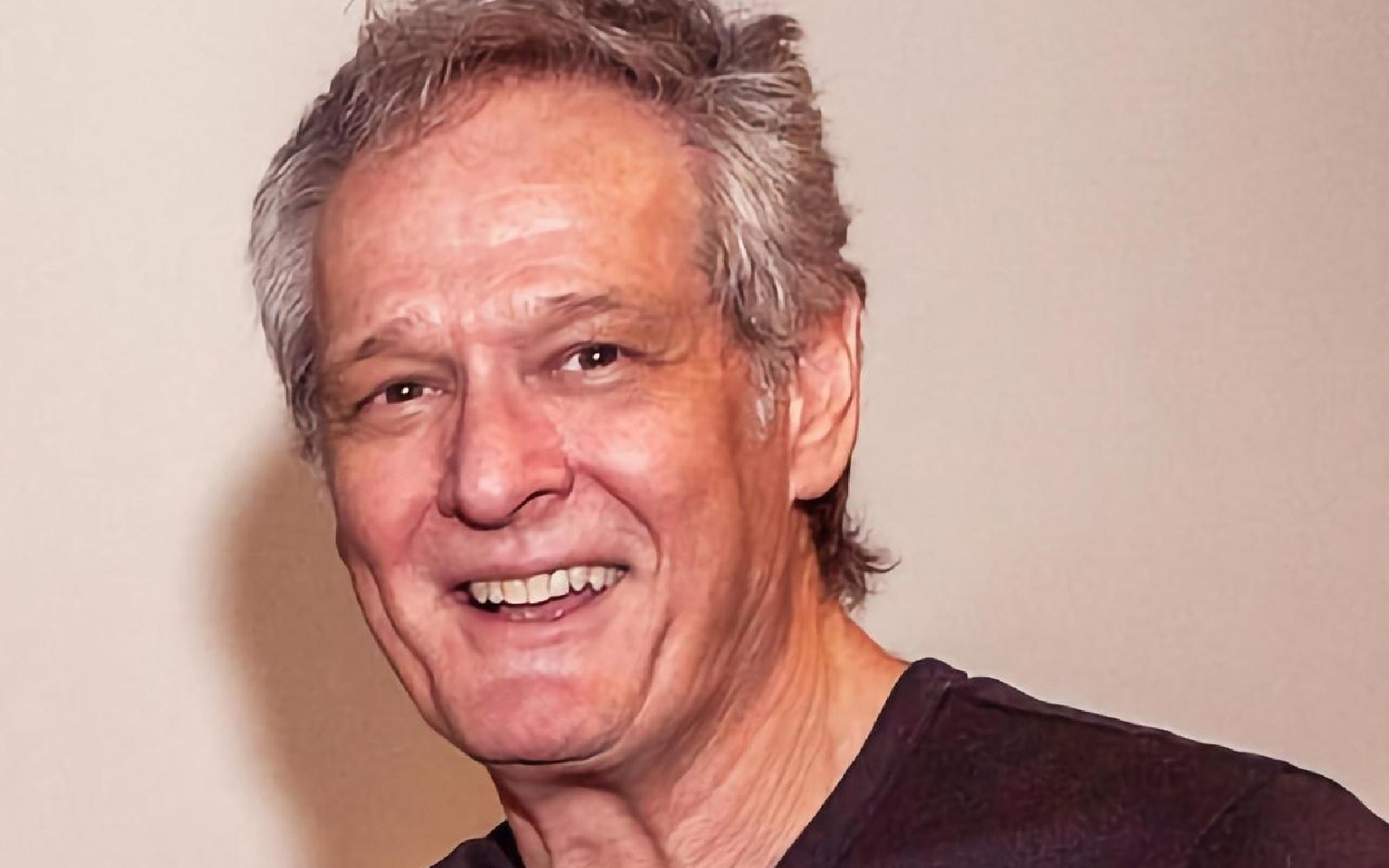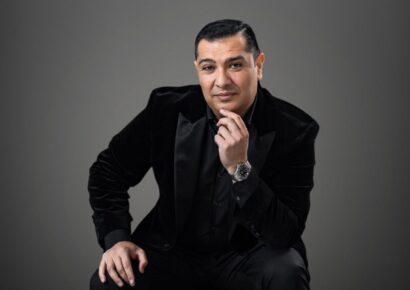Grammy nominated producer and guitarist Mark Moffatt, who was behind 30 of the best Australian hits, passed away last Friday September 6 aged 74.
Queensland-born Mark Moffatt, who has lived in Nashville since 1996 had battled pancreatic cancer for a more than a year.
Speaking to Mixdown in 2022, he said: “One of the hardest things to convince the Australian music industry is it’s better to go to Nashville, which is not hee-haw, and you get better opportunities than in New York or Los Angeles.”
Shattered
Fellow globally acknowledged producer Mark Opitz responded to news of his passing: “Absolutely shocked and shattered. I’ve known Mark since the (Brisbane ’70 blues rock band) Railroad Gin days in Brisbane.
“We worked together on projects together, spent time in Nashville hanging out in biker country music bars til 4am.
“But more importantly he was a dear friend and a wise gentle man.”
Read up on all the latest features and columns here.
Nice Guy
Former Cold Chisel manager Rod Willis posted: “A fine producer, musicians and more than that, a really nice guy.
“His legacy to Australian music is to be appreciated.”
In a remarkable career, Moffatt sold guitars to Jimmy Page and Jeff Beck in London and made the first Australian punk record “(I’m Stranded” with The Saints.
He won awards for records with Yothu Yindi, Divinyls and Neil & Tim Finn, was in-house producer for major labels, set up Vault Studios in Sydney, fell out with Michael Gudinski when he started his own Centre Records, and was instrumental in the global launch of Keith Urban.
QUEENSLAND
Mark Moffatt grew up in the Queensland town of Maryborough after coming under the spell of The Beatles.
But there was little musical happening there, so he moved to Bundaberg, and hung out with British immigrants who were starting bands and played with the likes of Web, Spike and Stop Press.
Blues Rock Boom
He eventually shifted to Brisbane, where the blues-rock boom was taking in shape with the likes of Mick Hadley’s fearsome Purple Hearts, Chain and Bay City Union.
Having scored a retail job at Drouyn’s Drums in George Street, he got the wanderlust. In 1972 he hopped a boat to London.
LONDON
On arriving, he got a copy of Melody Maker, went to the ads at the back, and sent out job applications to guitar shops.
He got two nibbles, a classical music store and the other from Top Gear, at the time the only guitar shop on Denmark Street.
Jimmy Page
In the second week he started, he looked up to find Jimmy Page strolling in. Then came Jeff Beck, Gary Moore and Jeff Beck.
“I got to know them and had ready access to them,” he recalled.
Trident Studios
Trident Studios, where the Stones and Hendrix recorded was up the street.
Moffatt would slip up to snag some sessions work and also pick up tips from the studio engineers.
BACK IN BRISBANE
By the time he returned to Brisbane in 1976 as a 25-year old, he had enough knowledge to land a job as house engineer at recording pioneer Bruce Window’s Window Recording Studios in Buchanan St in the West End.
Window built the console, configuring it with 24 mic input channels and a 16-channel monitor section.
Large For Its Time
“It was quite large for its time,” Moffatt recalled to Mixdown. “Each channel had a high quality input transformer and old style passive equaliser technology resulting in a very full sound and still highly desirable these days in vintage consoles.
“The console had been through the ’74 Brisbane flood and after cleaning it functioned well which speaks to the quality of construction.”
The Saints
On a Tuesday evening in June, two members of The Saint drove up in their transit van and told them they wanted to make a record.
It was their first, and they had no idea how a studio worked.
“Window was just a control room and one recording room measuring about 25’x25’ which was not very big,” Moffatt said.
“So this meant using baffles on the drums and guitar amp.
Left Hand Corner
“The drums were always in the back left hand corner, Ed was set up as far away from the drums as possible, in the opposite corner which was also close to the door and also meant I could run a mic cable out into the hallway.”
Moffatt suggested some changes, including Chris Bailey doubling his vocals in the chorus (vocals were miked from the concrete hallway) and Ed Kuepper doubling his guitar.
Golden Tone
Moffatt also found Kuepper’s Golden Tone amp too clean, and lent him the 1960 Fender Super he brought back from London.
“It was a tremendous amp, the speakers were on the verge of blowing and it had a replacement output transformer from a Marshall, an unusual combination which gave it a loud angry growl when turned up full.
Plugged In
“Ed plugged straight in (no pedals, contrary to urban myth) and there was the sound, his powerful right hand and that amp. Not much else was said as it was clearly better for the recording than his amp.”
Recording and mixing “(I’m) Stranded” and its b-side “No Time” took five hours for a total of $250 (or roughly $1,653.30 in today’s money).
It gave Mark Moffatt his first global hit.
EMI and TCS Studios
Production stints with EMI and TCS Studios in Melbourne (the latter where he was mentored by the great John French) led him to Sydney in 1980.
It was having done crash course on the Neve (“back then no one seemed to like them”), where he landed the sought after gig of becoming Festival Records’ in-house producer.
Biggest Names
He worked on some of the biggest names in Australian music for more than a decade.
He helmed more tracks in the APRA Top 30 Songs of All Time than any other single producer, and produced an astonishing 15 ARIA Hall of Fame inductees.
Eric Clapton
He also worked with Richard Clapton, Renee Geyer, Mondo Rock (Chemistry), Pat Wilson (“Bop Girl”), Tim Finn (“Fraction Too Much Friction”), The Ghostwriters, Anne Kirkpatrick (Out Of The Blue), the Starstruck soundtrack, Mental As Anything, Jimmy and the Boys, Jenny Morris, Eurogliders and Neil Murray.
He travelled to Yirrkala in the NT to spend time familiarising himself with their beliefs before they began recording Tribal Voice and “Treaty” in 1991 in Melbourne.
It would become one of the biggest indigenous hits internationally until The Kid Laroi.
MONITORS
During down-time in the studio, he would record some of his own stuff.
At that time British punk producer and jingles writer Trevor Horn put together a studio outfit with a changing lineup.
Called Buggles, they had a worldwide #1 hit called “Video Killed The Radio Star”.
Assembled
Moffatt assembled the similar The Monitors, playing guitar, bass and keyboards.
It was done with his jingles partner Terry McCarthy on vocals and keyboards and one time Beach Boy and Bonnie Raitt member producer Ricky Fataar on drums, percussion, guitar and keyboards.
The debut single “Singing In The 80s” went platinum and entered the Top 15, followed by an album.
THE VAULT
After Festival came his own The Vault studio, a Soundcraft two-inch 24-track facility and an Auditronics 501.
It was originally set up in his farm in Queensland, but later moved to Balmain, in Sydney, in the previous premise of a shipping company.
NASHVILLE
Moffatt’s career changed when Bruce Coburn, who had owned TCS Studios in Melbourne, moved to Nashville.
He told Moffatt he had signed Keith Urban to a publishing deal, and wanted him to come over and work with him.
Worked Out
Even before this invitation, Moffatt had already worked out he was going to make Nashville his home than Los Angeles or New York.
“I wanted to be close to the places like Memphis and New Orleans where the music which shaped me came from.”
Making His Mark
He made his mark in Nashville quickly, creating more hits and being a mentor and producer for Aussie acts as Mark O’ Shea, Melinda Schneider, Abbey Stone, Ross Wilson, Midnight Oils bassist Bones Hillman, Wright Smith and Brian Cadd.
He was president for three terms of the Americana Music Association, a co-founder of the Americana Music Foundation, served for ten years as APRA’s Nashville Ambassador, and was awarded the CMA (Country Music Association) Global Achievement Award.
KILO
At the time of his death, Moffatt was putting the finishing touches on a full album for KILO, a band he formed ten years ago with John “Swanee” Swan and which has released a series of singles and EPs.
Moffatt said: “Of all the Scottish soul singers – including Rod Stewart and Frankie Miller — John has the most distinctive.”
Read more about Mark Moffatt and his legacy here.

